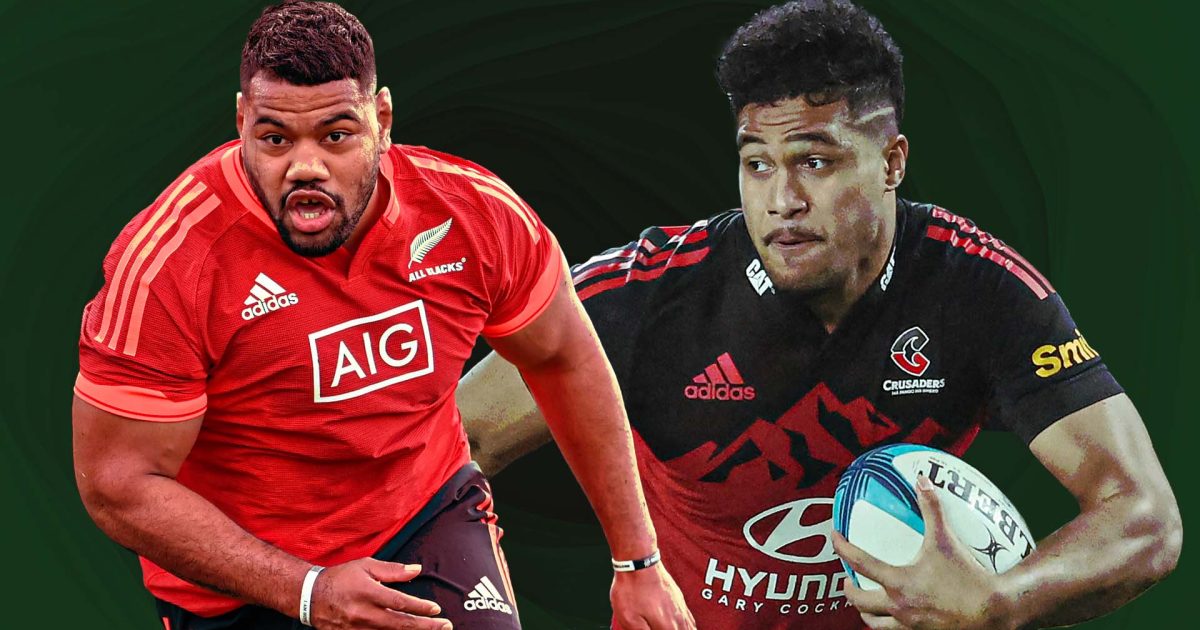Time for the All Blacks to fast-track their exciting youngsters

18 months out from the 2023 Rugby World Cup, New Zealand could be set for a changing of the guard.
Typically, a slew of star All Blacks call time on their international careers following the four-yearly tournament. After 2011, John Afoa, Brad Thorn and Mils Muliaina all departed the shores of Aotearoa while Tony Woodcock, Ben Franks, Keven Mealamu, Richie McCaw, Dan Carter, Colin Slade, Ma’a Nonu and Conrad did the same four years later.
Following the last World Cup in Japan, however, the departures were minimal: Matt Todd, Kieran Read, Sonny Bill Williams and Ben Smith. While the decision to leave the latter two out of the semi-final clash with England was widely questioned, the fact of the matter is Read was the only one of the four to feature in the All Blacks’ top side at the time.
The fact that so few All Blacks left New Zealand following the 2019 tournament, coupled with the impacts of Covid allowing for extended squads over the past two seasons has seen the squad selections remain relatively consistent since Ian Foster took charge following the era of Steve Hansen.
Having had to select ‘just’ 36 players for the upcoming series with Ireland, however, Foster has seemingly swung the guillotine over a number of test careers.
While men like Luke Jacobson, Braydon Ennor and Asafo Aumua still have plenty of time to bounce back from their disappointment of missing the cut and push for spots at the 2023 and 2017 World Cups, the future is a bit grimmer for other more senior players.
Shannon Frizell, Brad Weber, TJ Perenara, George Bridge all featured at the 2019 Rugby World Cup but have missed selection for the tests with Ireland.
While none of those players were first-choice options for the All Blacks last year, they have all add ample opportunities over the past few years to press for starting spots and come up short. That’s not a criticism – there’s certainly nothing wrong with being only the second-best player in your position in New Zealand, but the fact of the matter is they’ve struggled to push their positional rivals to take their games to the next level, and now they’ve paid the price.
Foster and his fellow selectors will now be hoping that some of the new talent in the squad can – at the very minimum – snap at the heels of the senior operators ahead of them in the queue. In the best-case scenario for the All Blacks, however, they wouldn’t just be forcing the proven performers to up their games, they’d be forcing their way into the match-day 23 and starting line-up.
With both Weber and Perenara out of the squad, Folau Faktava and Finlay Christie only have an ageing Aaron Smith ahead of them in the pecking order. While Christie is technically the more senior of the young halfbacks, Fakatava is the man who could be pressing Smith hard for game time as the international campaign progresses and, if his form at Super Rugby level over the past few years is anything to go by, should have an all but permanent hold on the All Blacks No 21 jersey by season’s end.
It’s a similar story on the wings. With Jordie Barrett likely to stay at fullback, despite spending some time in the midfield for the Hurricanes throughout the season, that leaves Will Jordan, Sevu Reece, Caleb Clarke and Leicester Fainga’anuku competing for spots in the No 11 and No 14 jerseys. Jordan and Reece may be the more experienced figures, but Clarke and Fainga’anuku boast power that can’t be replicated by the current incumbents – and that power may be too hard for Foster and co to ignore.
Already we know that a number of players who featured for the All Blacks against Ireland last year won’t be present for July’s clashes but, perhaps more importantly, New Zealand are finally moving away from some of the older players who haven’t quite cut the mustard in the past.
Even in roles where senior figures have been retained, there will be opportunities for youngsters to prove their worth. After two years effectively serving as an apprentice in the squad, Tupou Vaa’i is now very much at the point where he’s ready to be tried in the big matches – and there’s a massive upside to getting him up to speed, given his age. Samisoni Taukei’aho is in a similar boat and it wouldn’t surprise to also see Quinn Tupaea given more minutes in 2022 after a solid debut season last year.
By the end of the year, players such as Fakatava, Fainga’anuku and Vaa’i could be well entrenched in the All Blacks’ top line-up – whether that’s as starters or in bench roles. For New Zealand’s sake, it’s important that these young players are given ample chances to step up in 2022 as next year will be too late, and the performance of some of the more senior figures over the past two years doesn’t necessarily bode well for the World Cup – especially if they’re expected to be the top performers in the squad.
It would be a crying shame if, by the time the All Blacks take on England in their final match of the year, the same old crowd that have been struggling to keep up with the standards required of international rugby are being marched out at Twickenham – and that means succession planning must get under way next month.









































































